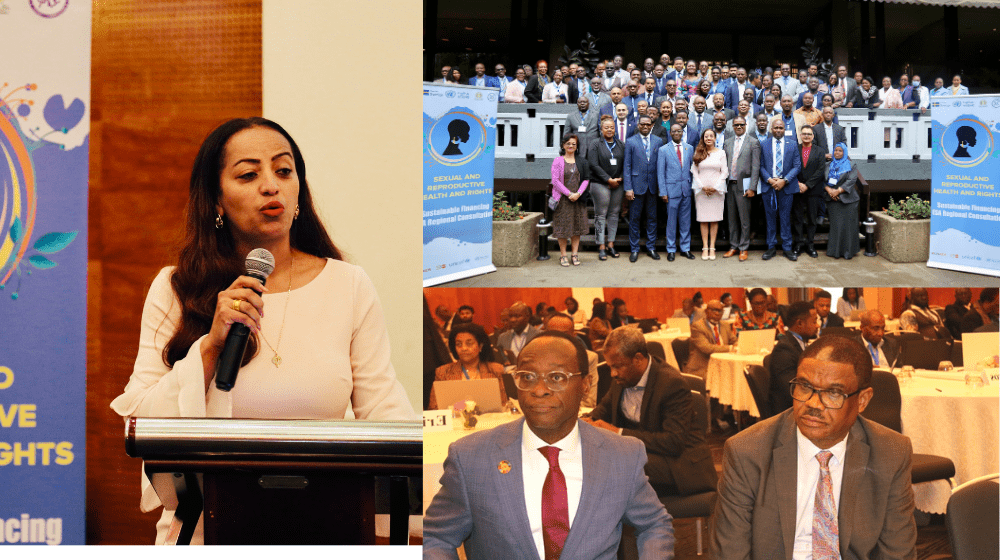Regional Consultation on SRHR Financing held in Addis Ababa
Addis Ababa, Ethiopia – A significant regional consultation on financing Sexual and Reproductive Health and Rights (SRHR) brought together approximately 140 experts from 23 Eastern and Southern African (ESA) countries in Addis Ababa from August 5-8, 2024.
Co-organized by the East African Community (EAC), Southern African Development Community (SADC), Joint United Nations Programme on HIV/AIDS (UNAIDS), United Nations Population Fund (UNFPA), United Nations Children’s Fund (UNICEF), and World Health Organization (WHO), the event focused on addressing the critical issue of inadequate financing for SRHR services across the region.
During the opening ceremony, Mr. Koffi Kouame, UNFPA Ethiopia Country Representative, welcomed participants and emphasized the importance of the consultation. "It’s time for us to establish a common understanding and develop a regional roadmap for sustainable SRHR financing. These sessions will be crucial in strengthening our partnerships and collaboration," he stated.
Dr. Kalowa, the WHO representative, underscored the participants' commitment to tackling the financial challenges associated with providing SRHR services. He praised the progress made in reducing maternal mortality and enhancing SRHR services in many African countries, while also highlighting the persistent challenge of ensuring sustainable financing.
Ethiopia's Minister of Health, Hon. Dr. Mekdes Daba, delivered a heartfelt opening address, emphasizing her personal dedication to SRHR. She celebrated Ethiopia's strides in the field and acknowledged the considerable work still required to achieve Sustainable Development Goals (SDGs) related to SRHR.
The consultation delved into the significant barriers posed by the lack of sustainable financing in achieving universal access to SRHR services. Participants examined various strategies to ensure financial sustainability, including improving public finance management and adopting innovative financing models to boost domestic resource mobilization, with contributions from the private sector.
Regional collaboration emerged as a key theme, with government officials, health experts, development partners, and civil society representatives sharing experiences and best practices in SRHR financing.
The event culminated in the development of a regional roadmap for sustainable SRHR financing, the identification of priority areas for investment and resource allocation, and the strengthening of partnerships and collaboration among stakeholders. This consultation marked a pivotal step in addressing the financial challenges that impede progress in SRHR, aiming to enhance health outcomes across the region.


